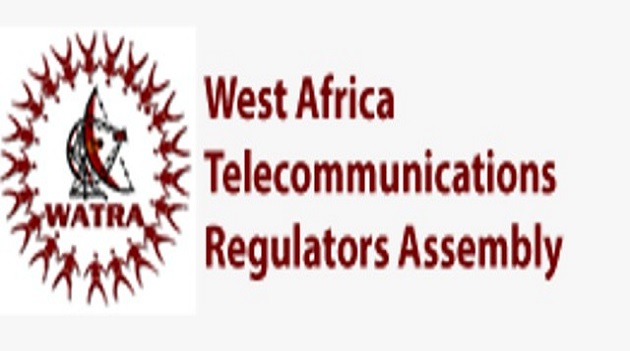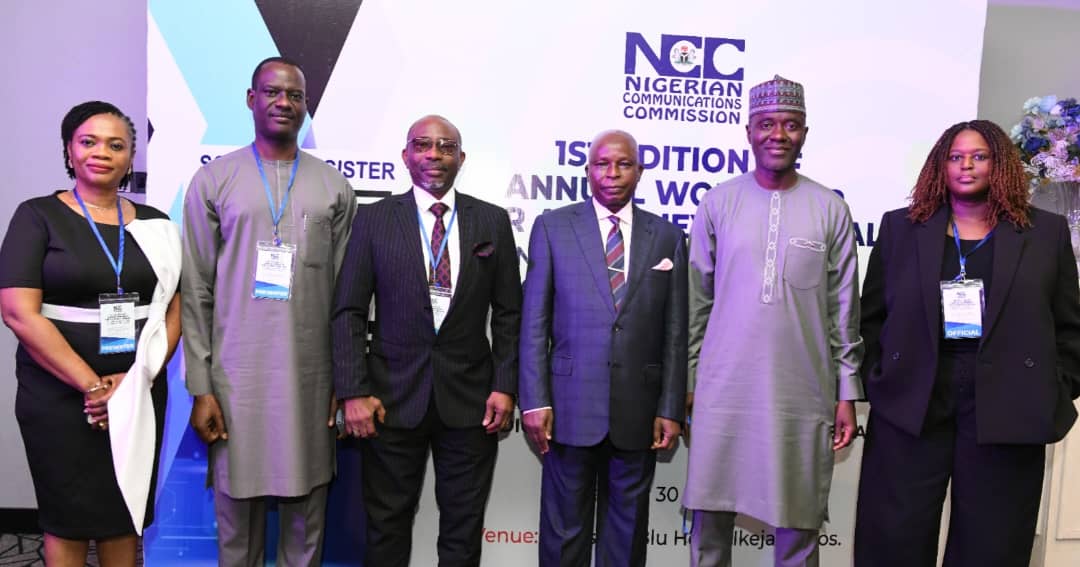Telecom
Acer Unveils New Iconia Tablets, 27-inch Android-Powered All-in-One
Acer has just introduced two new Android tablets, a new budget smartphone, and an Android powered all-in-one computer.
Acer refreshed the Iconia A1 and B1 affordable Android tablets it first launched last year, bringing improved specifications and a classier design. Leading the pack is the new Iconia A1-830, a 7.9-incher combining an HD IPS LCD screen with an Intel processor and 1GB of RAM.
The device is powered by an Atom Z2560 processor running at 1.6GHz, and should be good for 7.5 hours of battery life.
The 16GB of internal storage can be extended with up to 32GB using the microSD card slot, while the 5MP rear camera should be good for some quick snaps in case of emergency, but little more.
Everything’s packed into an aluminum chassis that measures 8.5 millimeters in thickness; the tablet weighs 380 grams.
The new Iconia A1-830 will be available in the following weeks for just $180, shaping up as a great option for those looking for a cheap, decent Android device.
Acer will be also putting on sale a smart cover, Bluetooth keyboard, and other accessories for the new A1.
The new Iconia B1-720 is even cheaper, at $130, but the low price tag comes with the compromises you would expect – the 7-inch device features a dual-core processor of an unspecified brand clocked at 1.3GHz, 1GB of RAM, and either WiFi-only or 3G connectivity.
The device is rated for five hours of battery life, and will be available in two color options – smoky grey and vermillion red (front frame only).
Details are scarce for now, but we’ll definitely complete the Iconia B1-720’s spec sheet once we get some hands-on time with it next week.
Acer added to its range of All-in-Ones with the TA272 HUL, which combines a 27-inch PC monitor with Android 4.2 Jelly Bean.
The behemoth offers 2,560 x 1,440 resolution with 10-point multitouch and is powered by a quad-core Nvidia Tegra processor. You also get a web cam, 16GB of storage, an USB 3.0 port, as well as DisplayPort and HDMI ports.
The device goes for a stingy $1,099, which is $100 more than the monitor-only version, Andorid Authority reported.
—
Telecom
NIMC Migrates Telcos to NINAUTH Platform

National Identity Management Commission (NIMC) has announced the successful migration of all Telecommunications firms to the new National Identification Number (NIN) verification platform (NINAuth).

According to Dr Kayode Adegoke, head, corporate communications, NIMC, the migration marked a significant step forward in enhancing the security, efficiency, and user experience of NIN verification services.
Adegoke said in a statement that the NINAuth platform, designed and implemented by NIMC, offers seamless verification services to Nigerians.
He described it as a more convenient and secure way to verify citizens identities.
” By migrating to this new platform, Telecommunications firms can now provide uninterrupted verification services to their subscribers.
“This achievement is a result of NIMC’s painstaking efforts to put the power to control NIN data in the hands of the holders.
“The NINAuth platform enhances data protection, gives control of personal data to the owners, offers seamless verification, and provides convenient sign-on access to services,” Adegoke said.
He quoted Lanre Yusuf, director, IT/IDD, NIMC, as confirming that all telecommunications firms have been successfully migrated and uninterrupted verification services are being offered by the Commission.
While the Commission assured that the Verification and Authentication Service platforms are functional and accessible to all , it however, said any issue being experienced by NIN holders on New SIM registration, SIM swap, SIM migration, Welcome back SIM, and others should be directed to the Telcos for resolution.
Telecom
Aliyu Aboki, WATRA Executive Secretary Champions Regulatory Harmonisation to Unlock West Africa’s Digital Economy

Mr. Aliyu Yusuf Aboki, executive secretary of the West Africa Telecommunications Regulators Assembly (WATRA), has reaffirmed the Assembly’s commitment to -promoting a harmonised digital policy and regulatory environment across West Africa—stating that consistent, coordinated regulation is key to unlocking investment, innovation, and growth in the region’s digital economy.

Speaking at the opening of the third meeting of WATRA’s Working Groups in Accra, Ghana, Mr. Aboki emphasised that a harmonised regulatory space would turn West Africa into a coherent, unified digital market attractive to global and regional investors.
“WATRA is not just facilitating dialogue—we are laying the foundation for a seamless regional market where innovation and investment can thrive,” said Mr. Aboki. “This meeting in Accra reflects our collective determination to build regulatory infrastructure that enables inclusion, trust, and scale.”
Hosted by Ghana’s National Communications Authority (NCA), the four-day high-level session brings together telecom regulators, private sector leaders, development partners, and digital policy experts to share knowledge and experiences and develop recommendations that will refine regional frameworks in three key areas: consumer experience, infrastructure development, and cybersecurity.
Why Harmonisation Creates a Larger Market
The ECOWAS region—home to over 400 million people—has immense potential as a single digital market. Yet divergent national regulations have led to fragmented investment environments, increased compliance costs, and inefficiencies in service delivery.
By aligning rules and standards across borders, harmonisation expands the effective size of the market available to telecom operators, fintechs, digital platforms, and infrastructure investors. Instead of dealing with 16 different licensing regimes, spectrum policies, or consumer regulations, companies can scale more efficiently across the region—reducing costs and risks while increasing innovation and competition.
“Regulatory harmonisation transforms fragmented national markets into one larger, more investable region,” Mr. Aboki explained. “It’s the gateway to building regional tech champions, improving affordability for consumers, and fostering resilient digital systems.”
Why the Working Groups Matter
WATRA’s Working Groups—on Consumer Access and Experience, Infrastructure Development, and Cybersecurity—are the Assembly’s strategic engines for technical cooperation and reform. Under Mr. Aboki’s leadership, they are designing regional frameworks that serve as models for national implementation.
- Consumer Access and Experience: Enhancing consumer trust and fair service standards increases uptake of digital services and drives inclusive digital participation.
- Infrastructure Development: Harmonised infrastructure policies—especially around spectrum allocation, satellite communications and sub-sea and terrestrial optical fibre—attract investment in broadband, towers, and regional connectivity.
- Cybersecurity: Establishing regional cyber standards is critical to protecting users, safeguarding cross-border digital trade, and ensuring investor confidence.
“The Working Groups produce actionable, home-grown solutions that regulators can adapt to national contexts,” Mr. Aboki said. “They are where vision meets implementation.”
A Sector of Strategic Importance
West Africa’s telecommunications industry is a cornerstone of the region’s economic development. With over 250 million mobile subscribers, more than 120 million internet users, and nearly 15% of Nigeria’s GDP coming from ICT, the sector plays a transformative role in commerce, education, governance, and job creation.
Yet, the absence of harmonised rules continues to impede regional scale. Mr. Aboki stressed that the creation of a Single Digital Market in West Africa could unlock billions of dollars in annual value, supporting seamless mobile roaming, digital financial inclusion, cross-border e-commerce, and regional cloud infrastructure.
A Vision for Regional Digital Transformation
The Accra meeting will finalise recommendations and technical outputs for validation and adoption at WATRA’s next Conference of Regulators. These outcomes are expected to serve as shared regional standards—improving regulatory consistency while respecting each country’s unique context.
Ghana’s Acting Director-General of the NCA, Edmund Yirenkyi Fianko, expressed support for the harmonisation effort, citing Ghana’s leadership in ECOWAS free roaming and regional cybersecurity frameworks.
Aliyu Aboki’s Strategic Leadership
Since taking office, Mr. Aboki has steered WATRA into a new era of proactive, consensus-driven regional leadership. His efforts are helping to position the Assembly as a continental thought leader in telecom and digital regulation—bridging national priorities with a unified regional vision.
“Regulation should be an accelerator of innovation, not a barrier,” Mr. Aboki concluded. “Through harmonisation, we can build a larger, safer, and more inclusive market that delivers real benefits to citizens, investors, and governments alike.”
Telecom
NCC and Attorneys-General Forge Powerful Alliance to Accelerate Nigeria’s Digital Transformation

Nigerian Communications Commission (NCC) has officially inaugurated its first-ever Annual Workshop for Attorneys-General, convening top legal officers from across Nigeria to strengthen regulatory collaboration and drive the nation’s digital agenda forward.

L-R: Head, Legal & Regulatory Services, Nigerian Communications Commission (NCC), Chizua Whyte; Chairman, Presidential Fiscal Policy and Tax Reforms Committee, Taiwo Oyedele; Attorney General of Lagos State, Lawal Pedro, SAN; Attorney General of the Federation and Minister of Justice, Lateef Fagbemi, SAN; Executive Vice Chairman/Chief Executive Officer, NCC, Dr Aminu Maida; and Executive Commissioner, Stakeholder Management, NCC, Barr. Rimini Makama, during the 1st edition of a two-day Annual Workshop for Attorneys General on Emerging Issues in the Communications Industry, hosted by the Commission which started in Lagos on Wednesday, July 30, 2025.
Opening the workshop at the Sheraton Hotel in Ikeja, Dr. Aminu Maida, Executive Vice Chairman/CEO of the NCC, emphasized the urgent need for strategic partnerships between the legal community and regulatory authorities.
“Collaboration is not optional—it is essential,” said Dr. Maida.
The workshop aims to catalyze reforms in the outdated Nigerian Communications Act of 2003, aligning regulatory frameworks with cutting-edge technologies and evolving consumer needs. Areas of focus include artificial intelligence governance, 5G infrastructure rollout, and stronger data protection protocols.
Delivering the keynote address, Attorney-General of the Federation and Minister of Justice, Chief Lateef Fagbemi, SAN, praised the NCC for initiating this impactful dialogue. He underscored the importance of legal clarity and enforcement in combating obstacles such as fragmented taxation, overlapping regulatory mandates, and infrastructure vandalism.
Citing notable setbacks—including the 2023 vandalism of base stations in Kano and the tax conflicts in Ogun State—Chief Fagbemi described these incidents as economic sabotage and called for unified legal responses.
He also spotlighted Anambra State’s Right-of-Way policy, which led to a 38% increase in fibre optic deployment, urging other states to emulate such progressive approaches.
A pivotal highlight of the workshop was the reaffirmation of telecom networks as Critical National Information Infrastructure (CNII), officially designated under President Bola Ahmed Tinubu’s 2024 Executive Order. This new status demands heightened protection and robust legal support.
The NCC announced that the workshop will become an annual platform for cross-governmental collaboration on emerging digital challenges, including cybersecurity, sustainable connectivity, consumer rights, and regulatory innovation.
As Nigeria positions itself at the forefront of Africa’s digital revolution, this unified effort by regulators and legal stakeholders marks a bold step in shaping an inclusive, resilient, and future-ready communications landscape.

 Telecom2 days ago
Telecom2 days agoGlo Boosts Network Capacity for Enhanced Customer Experience

 News2 days ago
News2 days agoTranscorp Power Posts Strong Half-Year Profit, Declares ₦11.25Bn Dividend

 E-Financial2 days ago
E-Financial2 days agoFG Asks Banks to Report Individuals with N25m Monthly Transactions to FIRS

 Telecom2 days ago
Telecom2 days agoNIMC Warns Nigerians Against Selling NIN Data Amid Rising Identity Fraud

 E-Business2 days ago
E-Business2 days agoTemu Joins INTA to Combat Counterfeits and Elevate IP Standards Worldwide

 Telecom2 days ago
Telecom2 days agoMTN’s Uto Ukpanah Becomes 30th ICSAN President, Reinforcing Female Leadership in Governance

 News2 days ago
News2 days agoInfraCredit, AMDA Sign Partnership to Unlock Local Financing for Africa’s Mini-grid Sector

 General News2 days ago
General News2 days agoFG Collaborates with China to Digitalize Customs



























